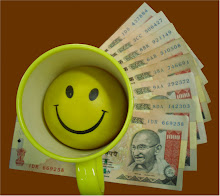By : Y.Prakash on 10 November 2009
With barely over four months left for the rollout of the goods and services tax,
states on Tuesday proposed that the new tax regime should subsume most
central indirect levies like excise and service tax as well as state taxes
like VAT, making it easier for business and industry.
The states released a discussion paper prepared by the Empowered
Committee of their finance ministers in New Delhiwhich said the
GST should also replace cesses and surcharges at both the central
and state levels.
The much-talked about discussion paper did not give any idea
about rates and the items to be included in it.
However, it made some specific suggestions such as alcohol
and petroleum tax should be out of GST, while tobacco be
included in it.
The committee would take a final view on whether natural gas
would be included in the GST after further deliberations, it said.
Finance Minister Pranab Mukherjee, present on the occasion,
made it clear that the discussion paper is by the states.
"These are the views of the empowered committee of state
finance ministers. We will also look into it," he said.
Mukherjee evaded a direct reply to a query on whether GST
would be introduced as scheduled. Some states like Madhya
Pradesh, Gujarat and Haryana have asked for a delay in the
GST introduction.
"So far as dates are concerned, we are working on it,"
Mukherjee said, when asked about whether GST would
be rolled out from April one, 2010.
Doubts over the GST introduction has lingered for sometime
now, and Haryana on Tuesday came out with an official
statement saying the Centre should defer the rollout by a year.
The state also asked for compensation for the loss of revenue
of Rs 600 crore on account of the purchase tax levied on
foodgrains like wheat and paddy.
Gujarat has said that time available to introduce GST from
the proposed date is not adquate and the time frame need to be recast.
The discussion paper suggests that among central taxes,
additional excise duty, additional customs duty, and special
additional duty be replaced by the GST.
State taxes like entertainment tax, except for the one levied
by local bodies, luxury tax, taxes on lottery, entry tax except
octroi are proposed to be out once the new tax regime is introduced.
It proposed that exports from SEZs would not attract GST,
but sales from SEZ to domestic markets will draw the tax.
It also suggests that industrial incentives in the form of tax
exemptions should be converted into cash refund schemes.


I think it is all right if there is no GST on the export from SEZs.
ReplyDeleteFor more information on GST in India please see my website www.gstindia.com
ReplyDeleteReally a nice work on gst keep it up.
ReplyDelete